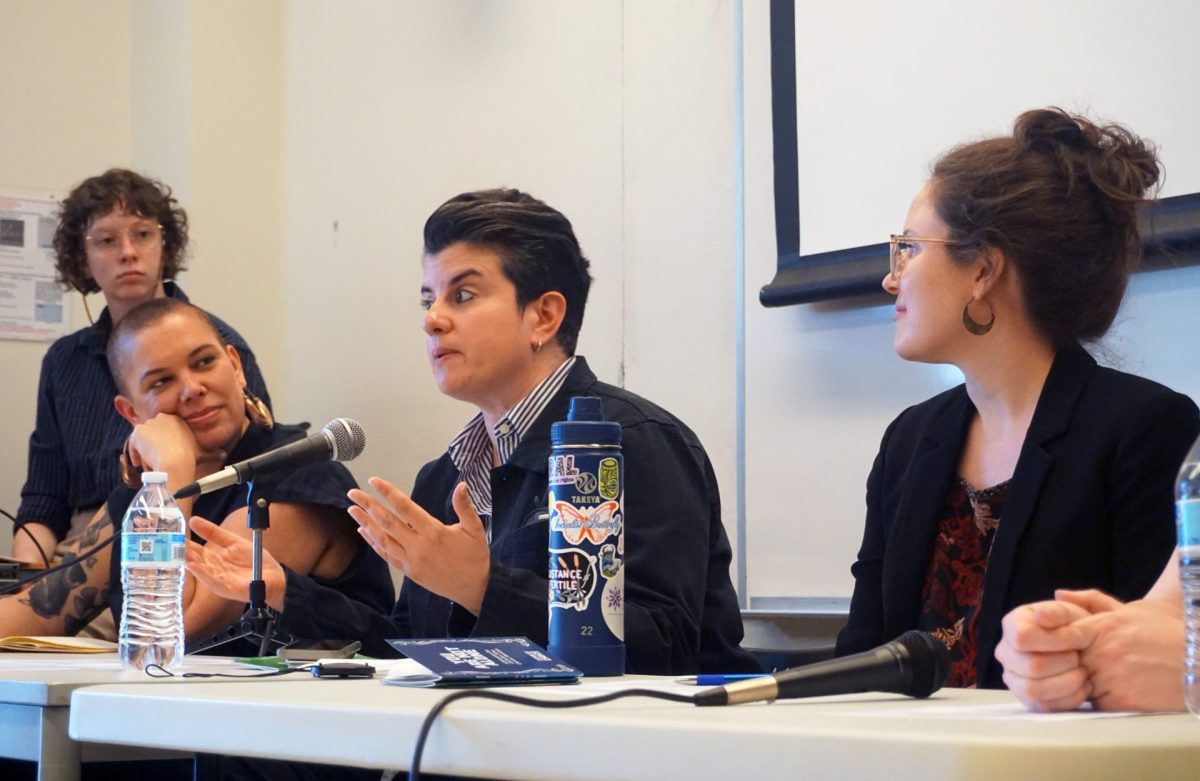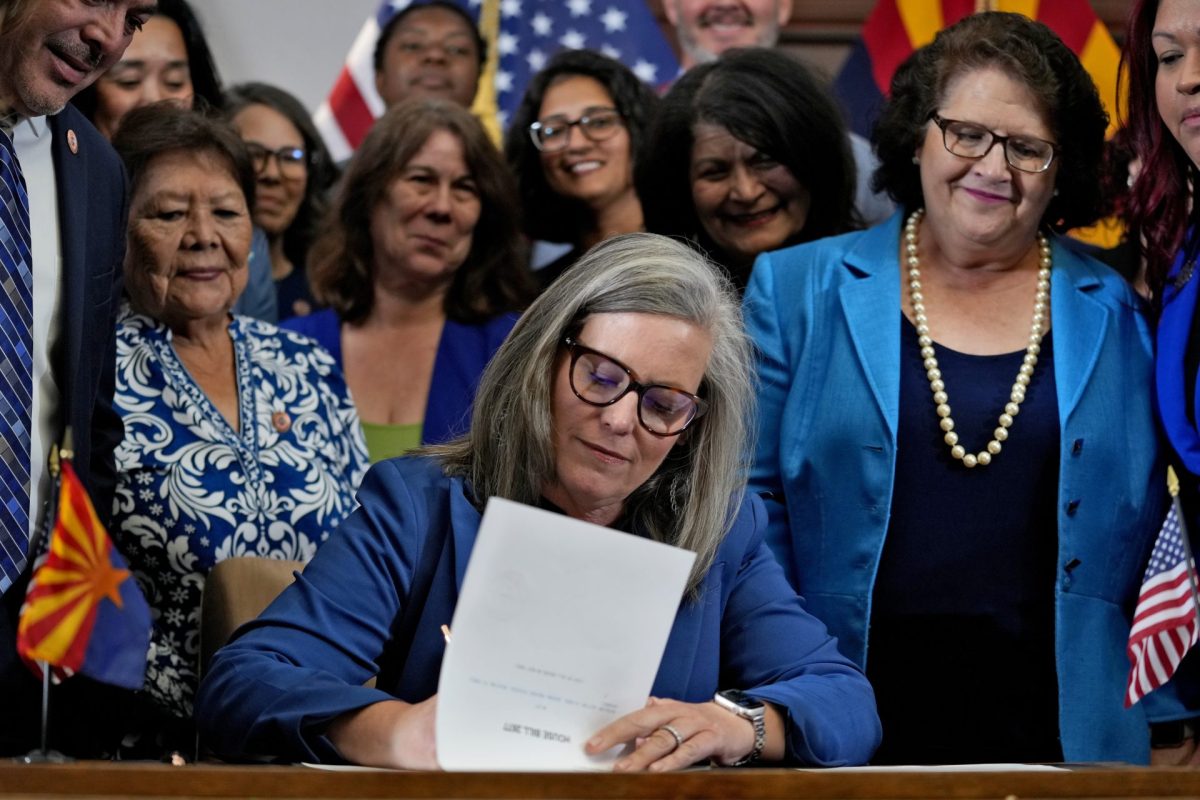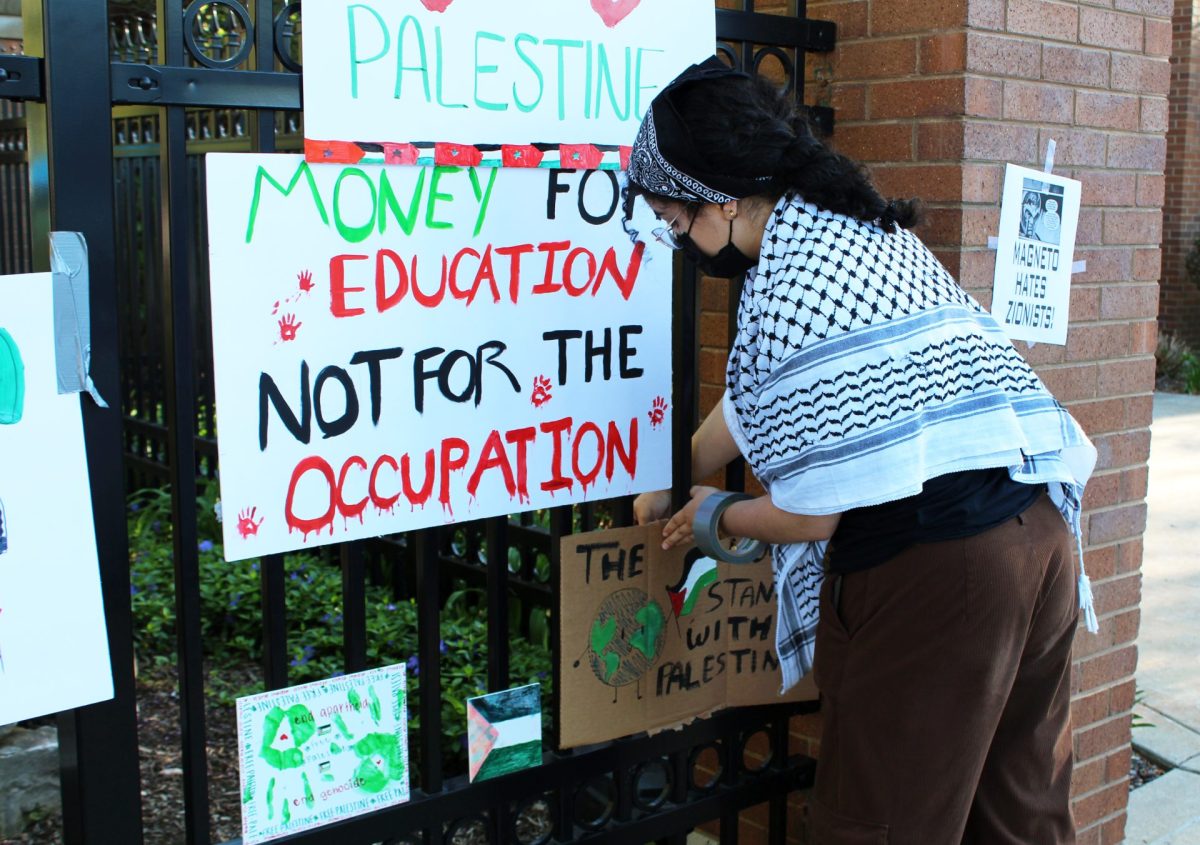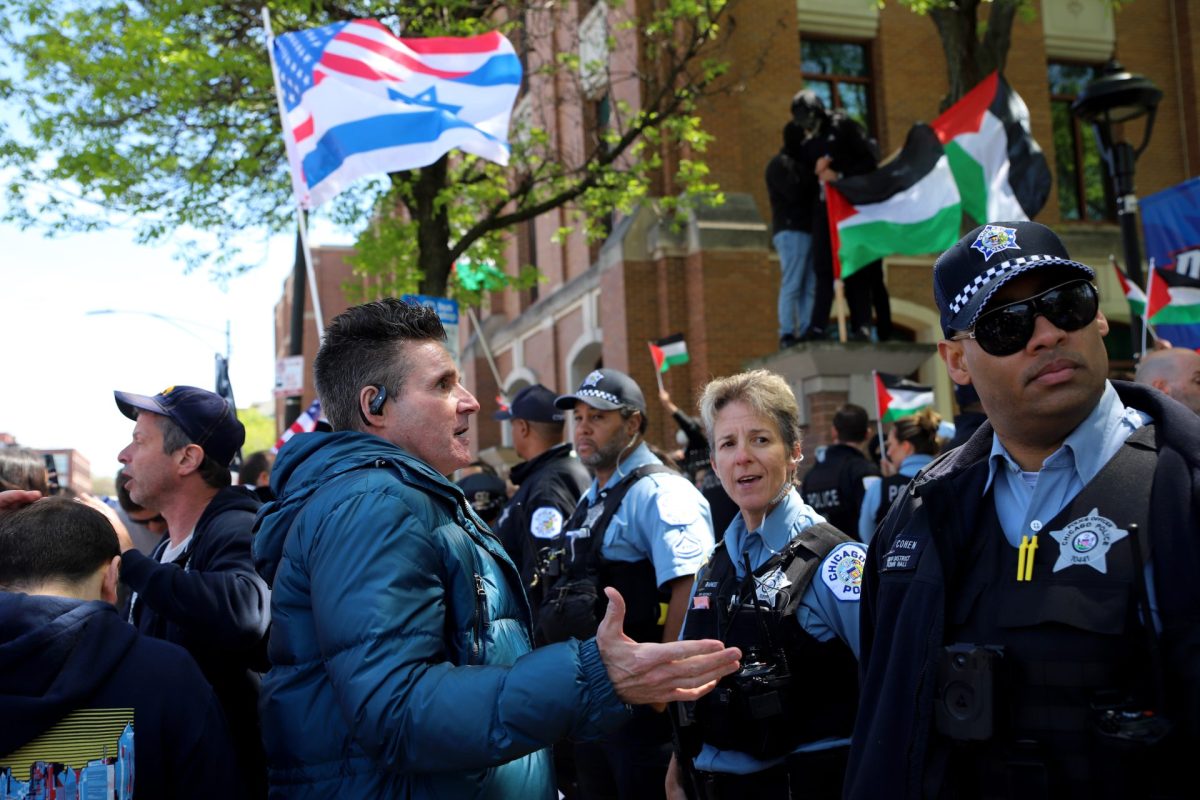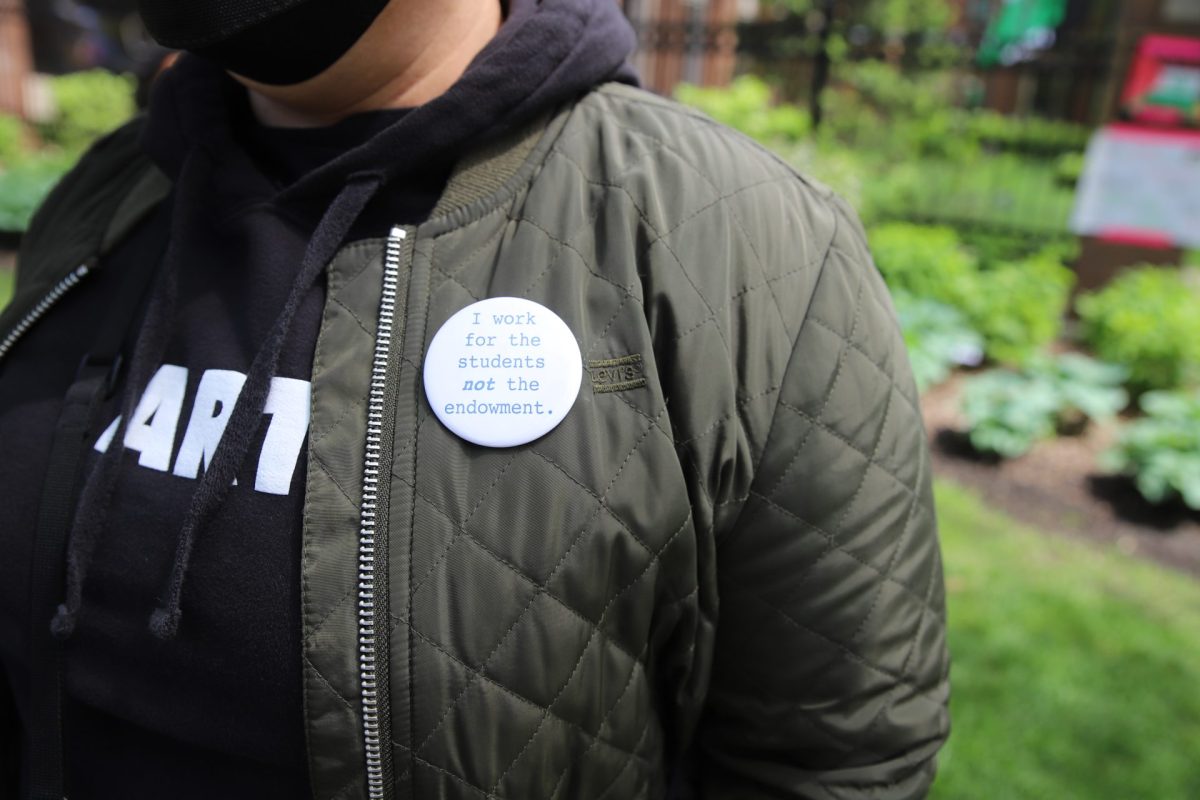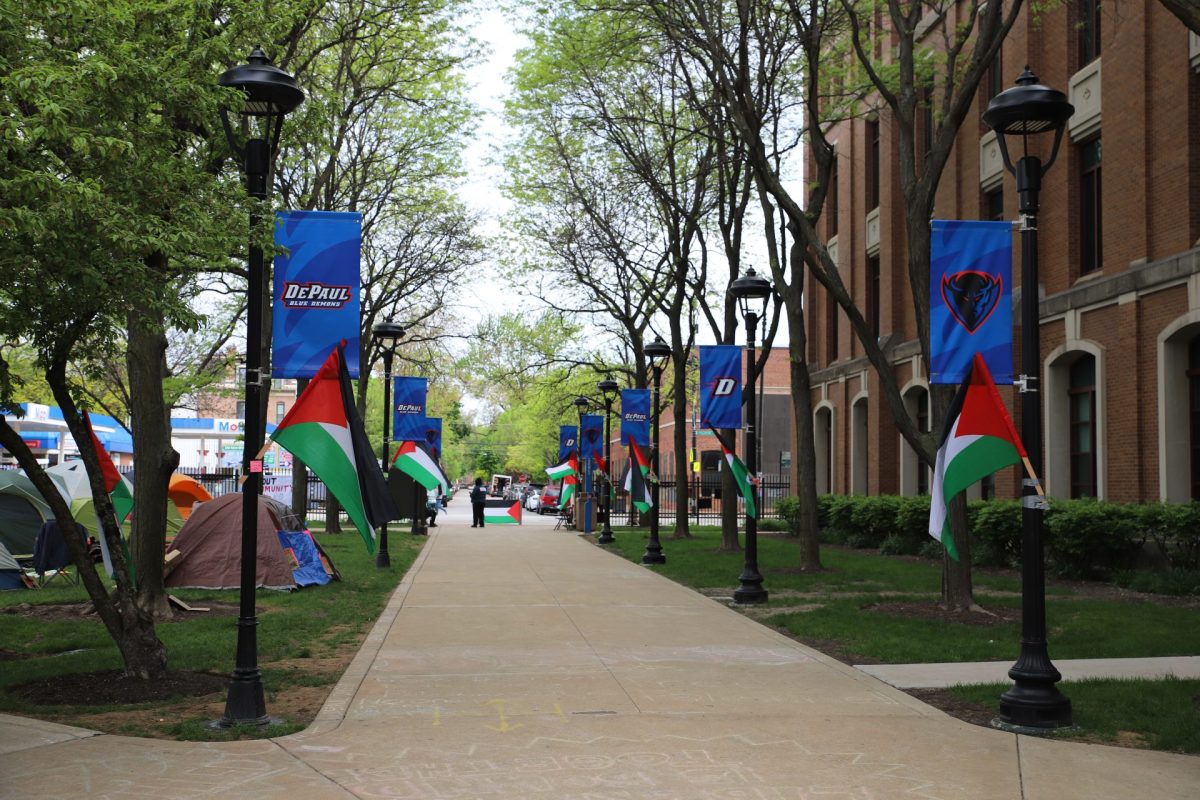Early voting started Oct. 22 in Illinois and voters have already started casting their ballots. Whether you are out of town on Election Day or your mind is already made up, early voting creates a stress-free way to cast your ballot on time. With just a government ID and no excuse necessary, early voting is an option until Nov. 3.
The closest location for DePaul students attending the Lincoln Park campus is at the Lincoln Park Public Library at 1150 W. Fullerton. On the first day of early voting, the Lincoln Park Public Library drew in 411 voters making it the sixth-busiest polling precinct in the city out of all the 51 polling locations.
Lincoln Park Public Library branch manager Joanna Hazelden said the early voting turnout so far is double what they have had in the past. “Our staff works very hard with setting up chairs and making sure the elderly voters are being taken care of,” said Hazelden, “If you are trying to avoid a long line, I highly recommend coming as early as possible.”
Unlike the presidential election in 2008, early voting in Illinois can now also be completed via mail. Before this current election, voters had to have an excuse, such as being out of town on Election Day, in order to be allowed to mail their ballots. Campaigns are also joining in by sending voters vote-by-mail request forms that they can just fill out and send to the Chicago Board of Elections. Not only will this likely increase the percentage of early voting compared to the 2008 election but it will also help increase the percentage of registered voters that actually vote in Chicago. With 23,000 ballots casted via mail so far, Chicago has already beaten out its “vote via mail” record of last year by a little more than 1,000 votes.
According to the Chicago Board of Elections, 15,711 people voted early Oct. 22, before the third and final presidential debate was taking place. For early voters with their minds already made up as to whom to vote for, the debates play different roles into their decisions. For others, debates are a perfect tool in order to clearly understand what each candidate views as priorities.
For junior theater arts major Katrina Dion, although she already has her mind made up, she still believes that the debate is important in terms of being able to see how the candidates interact with each other in front of millions of people.
“Being a woman in the arts, this election is really important,” said Dion. “While I may know what policies I agree with and who I am thinking of voting for, it is important to see and hear a candidate’s reactions and how they answer a question asked of them,”
Elections influence the laws that will get passed, who receives funding, and how our country will operate for the next four years. So for every voter, it is important to acknowledge and understand the views and policies of each candidate.
“When watching the debates, I get a better understanding of each candidate’s plan and I try and take into account how everything will affect my life and future,” said Dion, who plans on voting via absentee ballot.
There are also those voters who feel that the representation of the candidates in debates should be valued, but not as highly as it currently is.
Junior accounting major Conor Horan said he wouldn’t let a poor debate performance sway his voting decision. “Myself and people I know that have already voted knew which candidate we were going to cast our ballots for,” said Horan. “Don’t get me wrong, debates are very important, especially for the uninformed voter, but if you know the facts, you know the facts.”
Early voting lasts until Nov. 3 and all 51 polling locations are open Mon.-Sat. from 9 a.m. to 5 p.m.


